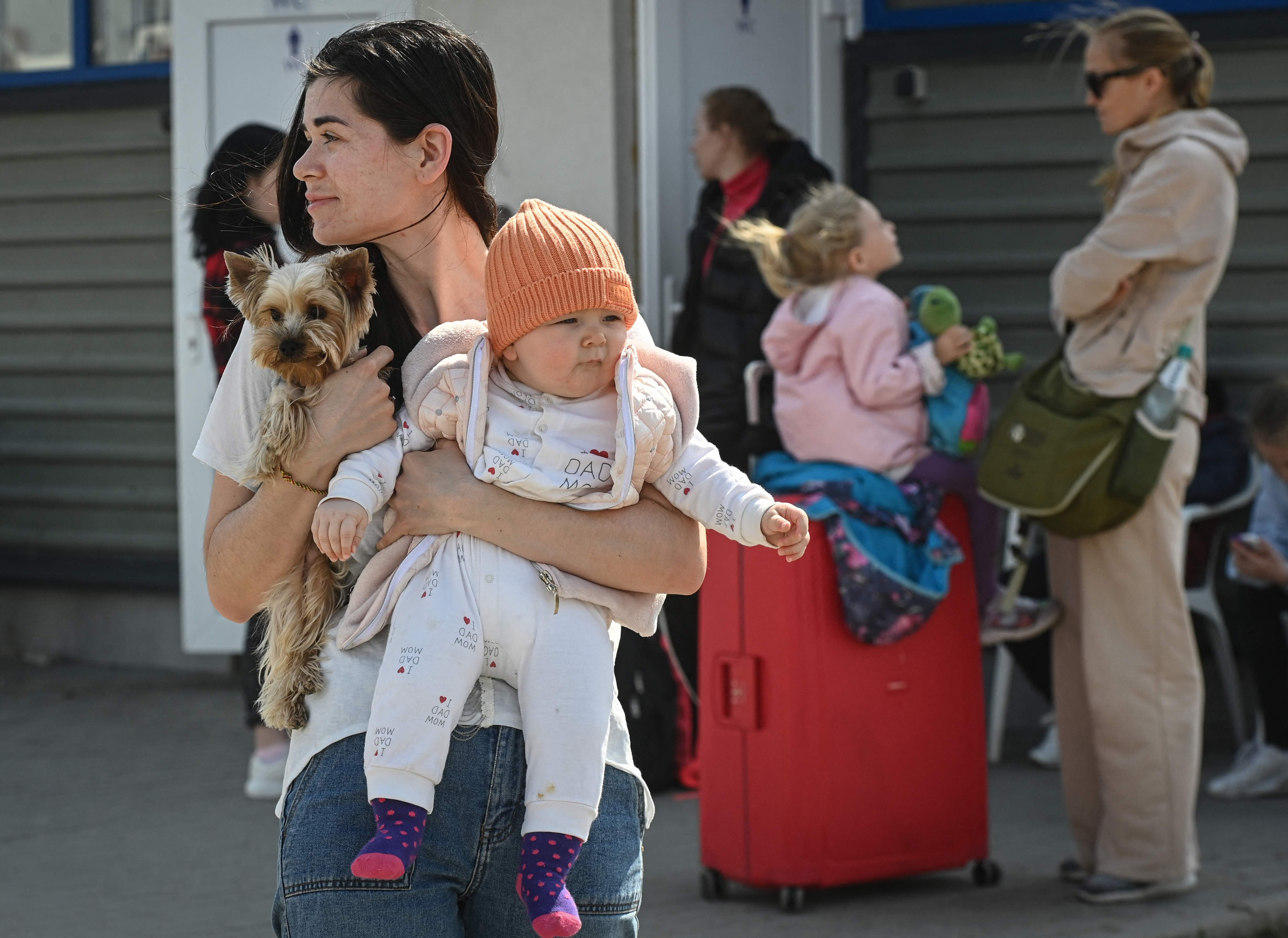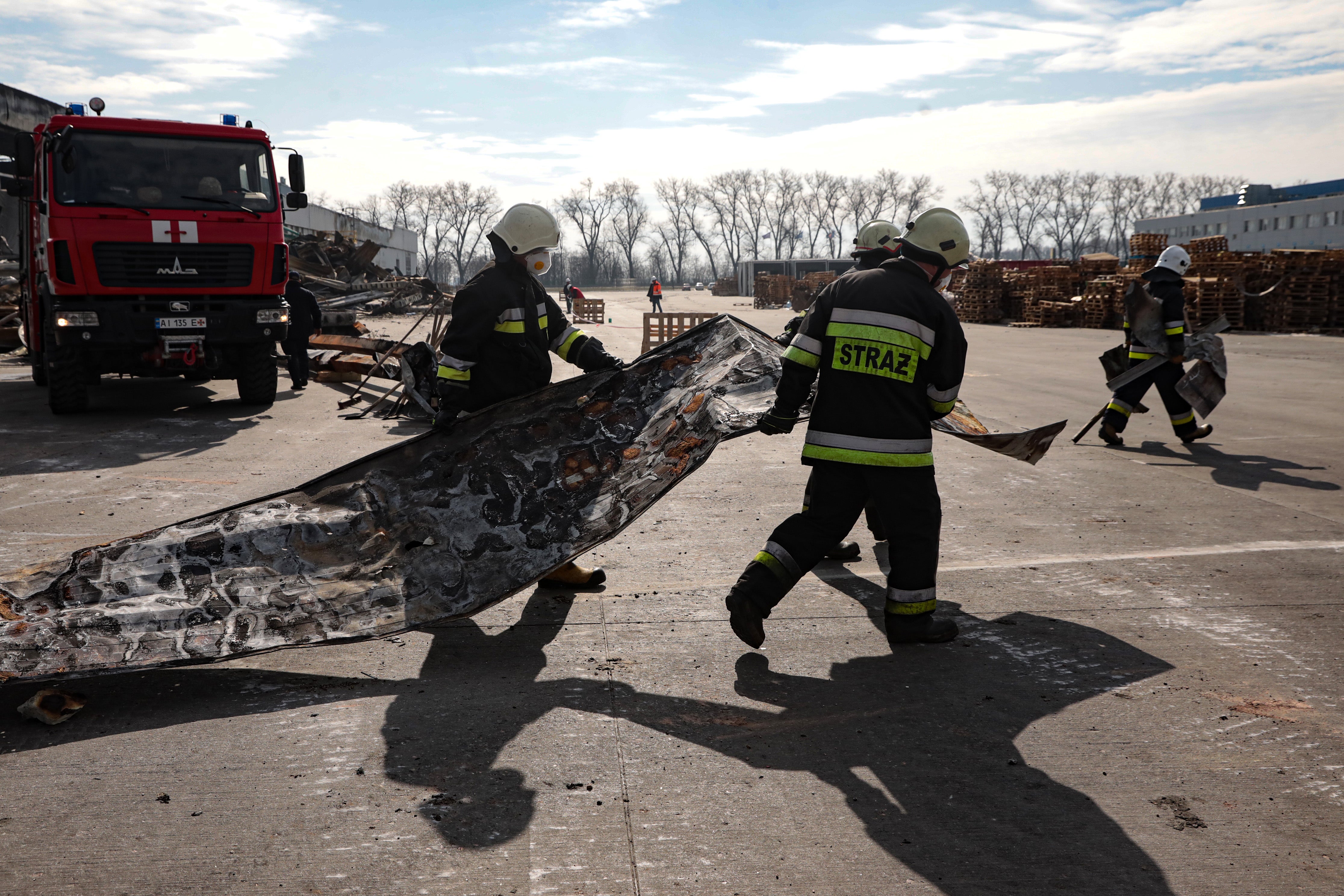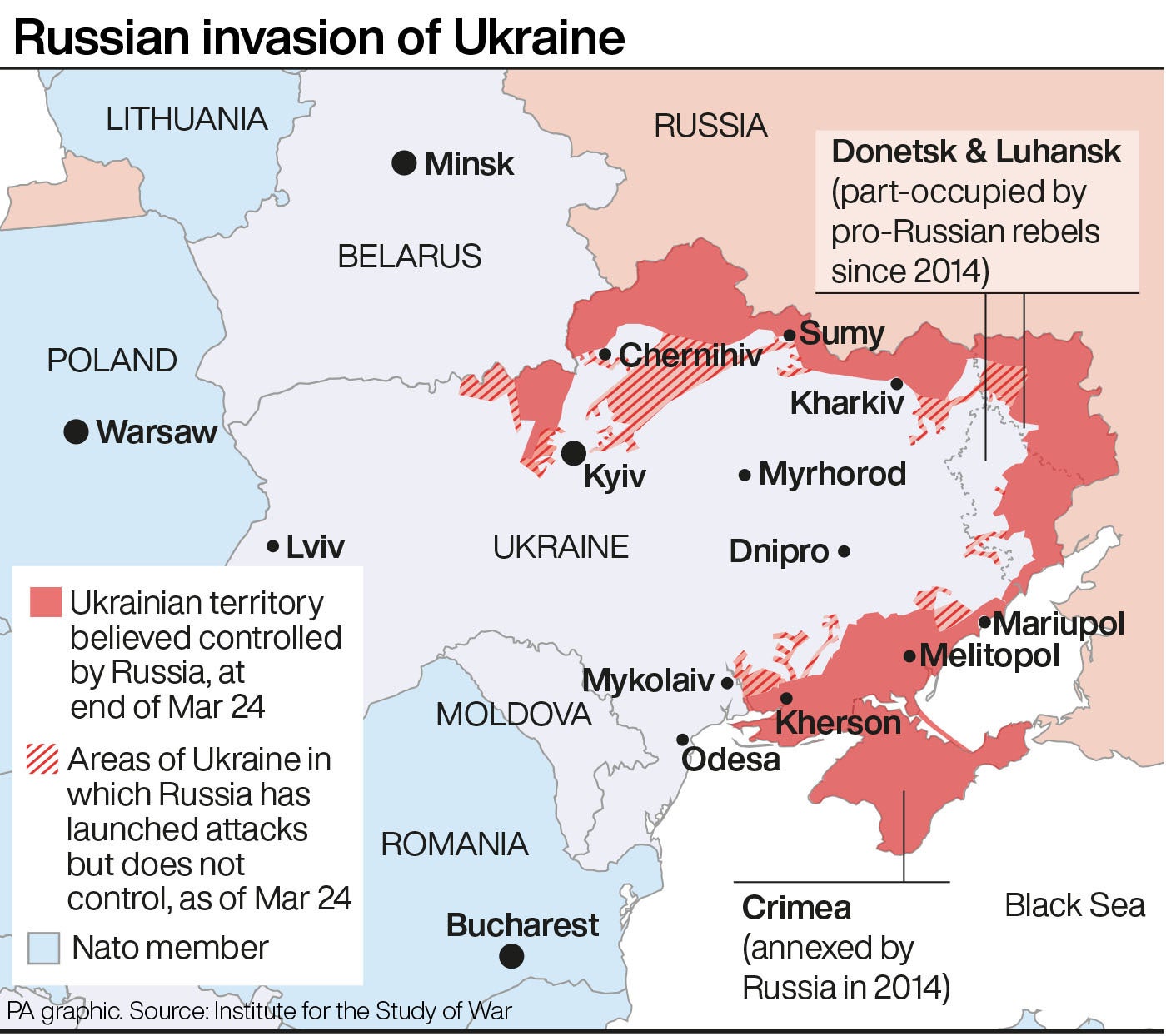Ukraine’s humanitarian crisis worsens as four million flee and Russia ‘hits’ Red Cross warehouse
Nearly a tenth of Ukraine’s population has left the country
Your support helps us to tell the story
From reproductive rights to climate change to Big Tech, The Independent is on the ground when the story is developing. Whether it's investigating the financials of Elon Musk's pro-Trump PAC or producing our latest documentary, 'The A Word', which shines a light on the American women fighting for reproductive rights, we know how important it is to parse out the facts from the messaging.
At such a critical moment in US history, we need reporters on the ground. Your donation allows us to keep sending journalists to speak to both sides of the story.
The Independent is trusted by Americans across the entire political spectrum. And unlike many other quality news outlets, we choose not to lock Americans out of our reporting and analysis with paywalls. We believe quality journalism should be available to everyone, paid for by those who can afford it.
Your support makes all the difference.Russia has been accused of shelling a Red Cross facility in the stricken city of Mariupol, as the humanitarian crisis in Ukraine worsened on Wednesday, and hopes that a political settlement could end the five-week long war were called into question.
Lyudmila Denisova, who is responsible for monitoring human rights abuses for the Ukraine parliament, said a warehouse had been struck by Russian forces.
“In Mariupol, the occupiers aimed at the building of the International Committee of the Red Cross,” she said.
An International Red Cross spokesperson said an image circulating on social media did show one of their warehouses in Mariupol but could not provide more information.
The claims came as grim humanitarian milestones were reached in the war.
The UN Refugee Agency (UNHCR) announced that the number of Ukrainians who had fled their country had tipped over the 4 million mark, and Unicef said that figure included 2 million children for the first time.
With a population of about 44 million, this means that nearly a tenth of the Ukrainian population has left the country in five weeks.
Some 2.3 million have sought sanctuary in neighbouring Poland, and more than 600,000 are in Romania, data provided by UNHCR showed.
Moldova and Hungary have accepted 387,000 and 364,000 people respectively, while Slovakia has welcomed 281,000.
The UN said that more than 1,100 civilians have died in the conflict. The organisation’s human rights chief, Michelle Bachelet said: “Civilians are enduring immeasurable suffering, and the humanitarian crisis is critical.”
Meanwhile, Ms Denisova, who was speaking in Brussels, also claimed that 400,000 Ukrainians have now been forcibly displaced to Russia since the start of the war on 24 February.
Despite continued fears about conditions in Mariupol – where those who have survived continual Russian bombardment are running out of food, water and power – Russian president Vladimir Putin told the French leader Emmanuel Macron, in their latest call, that the shelling will only end when Ukrainian “nationalist militants” surrender.

The ever-deteriorating situation for ordinary Ukrainians came at the same time as hopes of a settlement receded.
Ukrainian president Volodymyr Zelensky warned that the Kremlin cannot be trusted over its vow to scale back fighting near Kyiv and the northern city of Chernihiv, with Russian forces still bombarding the outskirts of the capital.
On Tuesday, peace talks in Turkey hinted at a slim chance of peace as Moscow announced it would significantly reduce military operations, claiming that the move would “increase mutual trust” between both sides.
However, air raid warnings and the sounds of loud explosions in the capital overnight suggested Kyiv was still coming under fire and on Wednesday, Ukraine’s defence ministry spokesperson said there was no sign of a mass withdrawal of troops.
Intensified bombardment could be heard in Kyiv’s suburbs. In an address to the Norwegian parliament, Mr Zelensky told MPs that Russia wants “to destroy the foundation of Europe” and claimed that “for the Russians, there are no prohibited targets”.

His scepticism was echoed by the country’s military. The general staff of the armed forces of Ukraine said in a statement: “There are indications that the Russian forces are regrouping to focus their efforts on eastern Ukraine.
“At the same time, the so-called ‘withdrawal of troops’ is most likely a rotation of individual units and is aimed at misleading the Ukrainian military leadership.”
Ukrainian foreign minister Dmytro Kuleba wrote on Facebook that “the logic is extremely simple – the stronger Ukraine is, the better any future deal will be,” he said, and called for more arms to be sent to his country.
In the east of Ukraine, fighting continued to rage. Serhiy Haidai, governor of the Luhansk region, said Russian forces were trying to advance. “We expect an escalation,” he said.

Olexander Lomako, secretary of the Chernihiv city council, said the Russian announcement turned out to be “a complete lie”.
“At night they didn’t decrease, but vice versa – increased the intensity of military action,” Mr Lomako said.
Ukraine’s defence ministry said Russia’s main efforts were now “concentrated on surrounding Ukrainian forces in eastern Ukraine”.
Russia’s foreign minister Sergey Lavrov, speaking to journalists, claimed that his country and Ukraine had made “significant progress” in talks.

He said that Ukraine had “recognised the need” to give up on Nato and had conceded on breakaway regions in the east of the country. “The issues of Crimea and Donbas are settled for good,” said Mr Lavrov, a long time Putin loyalist.
This was immediately disputed by Kyiv.
“The issues of Crimea and Donbas will be settled for good after Ukraine restores its sovereignty over them,” said Oleg Nikolenko, a spokesperson for Ukraine’s foreign ministry.
Meanwhile, the economic repercussions widened. Germany issued a warning over its natural gas supplies amid concerns that Russia could cut off deliveries unless it is paid in roubles. Poland announced steps to end all Russian oil imports by the end of 2022.




Join our commenting forum
Join thought-provoking conversations, follow other Independent readers and see their replies
Comments